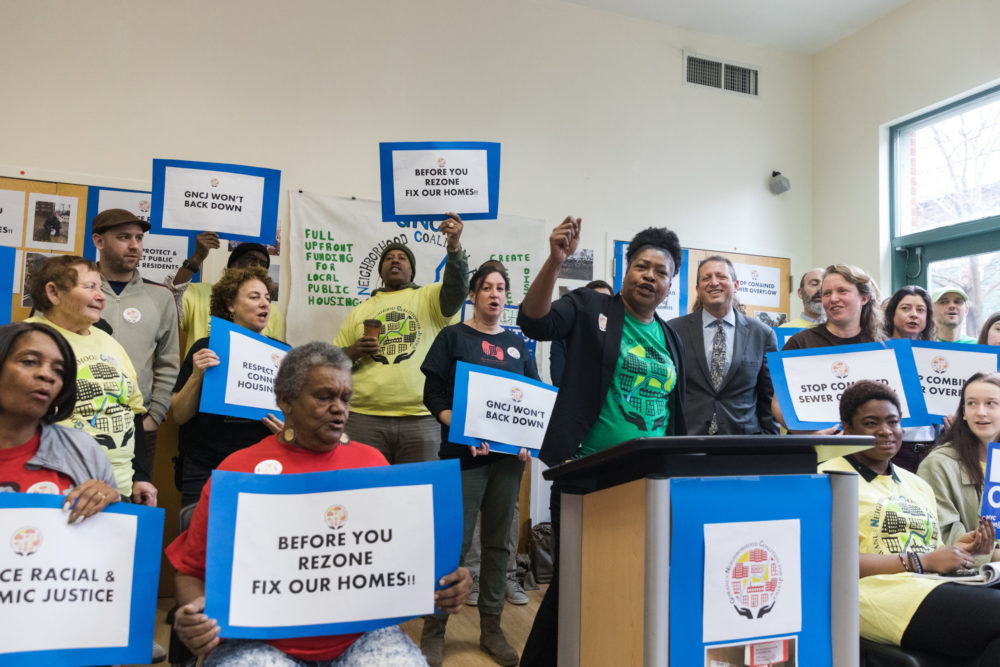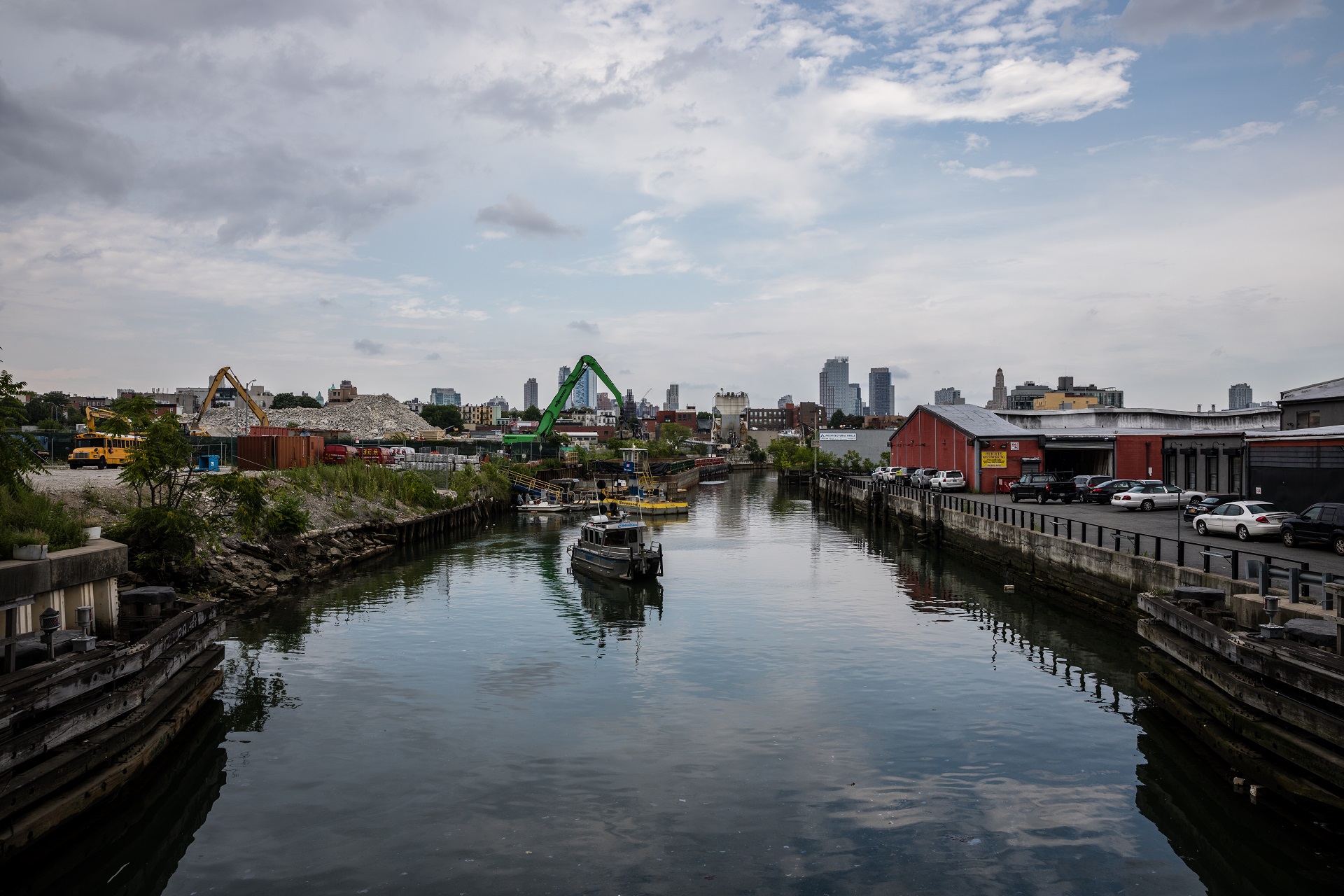Gowanus to city: Fix NYCHA, prioritize environment before rezoning

Members of the Gowanus Neighborhood Coalition for Justice came together on Feb. 5 to release their demands for the potential upcoming Gowanus rezoning. Photo: Paul Frangipane/Brooklyn Eagle
With the official public review of the Gowanus rezoning looming, residents, activists and local politicians gathered on Wednesday to articulate three demands that they want the city to take into account prior to the neighborhood plan being approved.
Members of The Gowanus Neighborhood Coalition for Justice insisted that the area’s NYCHA developments receive up-front funding, that sewage entering the Gowanus Canal be eliminated and that an environmental special district be created.
The city introduced a rezoning proposal in March that prioritizes an increase in housing and industrial space, and seeks to streamline waterfront access.
